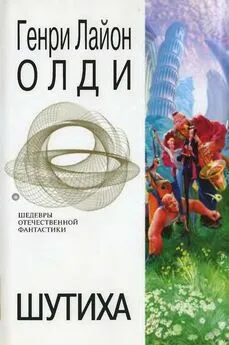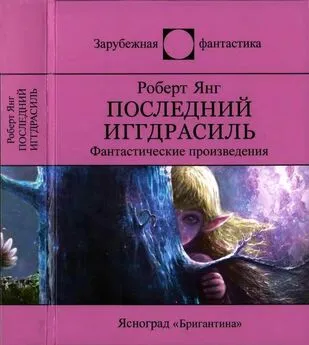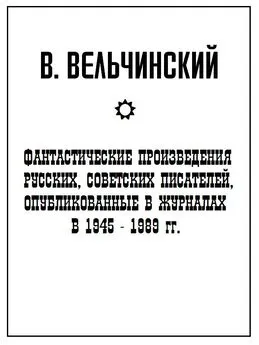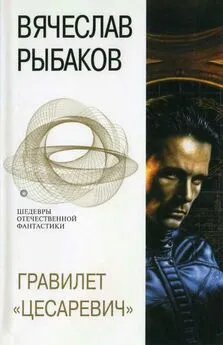Владимир Орловский - Машина ужаса [Фантастические произведения]
- Название:Машина ужаса [Фантастические произведения]
- Автор:
- Жанр:
- Издательство:Leo
- Год:2018
- ISBN:нет данных
- Рейтинг:
- Избранное:Добавить в избранное
-
Отзывы:
-
Ваша оценка:
Владимир Орловский - Машина ужаса [Фантастические произведения] краткое содержание
Машина ужаса [Фантастические произведения] - читать онлайн бесплатно полную версию (весь текст целиком)
Интервал:
Закладка:
“But, why do you speak about a catastrophe, colleague? And even if what you expect to happen, does happen, it will not pass beyond the bounds of the laboratory and can be disposed of right here.”
“Disposed of? And this I hear from you, assistant to Professor Flinder? Don’t you realize that we are powerless when it comes to the element? Can we, in any way or with any thing influence the work that goes on within the atoms? Can we stop the growth of this fiery vortex?”
“Growth?” this new idea impelled Hinez to withdraw hastily into the main laboratory.
Indeed, this was quite apparent: the flaming sphere, in the last half hour, had increased about a fraction of an inch in diameter. Besides, it was becoming more and more difficult to breathe in the room. The air was all pregnant with electricity. The twinkling of little bluish lights upon all the prominent parts of the apparatus and other appliances, transformed the whole picture into a fairy-scene.
Deriugin and Hinez left the laboratory, shutting the door tightly behind them. Actions and measures to forestall an impending calamity began immediately. Hinez took upon himself the task of informing all the professors of the Institute of the actual prevailing condition; Deriugin, meanwhile, departed to see Eike, a friend of his and the editor of a leading newspaper. To find him was not an easy task. But about one o’clock in the afternoon, he found him in his editorial office. At first Eike was hesitant and undecided about going with him. Professional curiosity finally, triumphed however.
They entered a machine that puffed at the street-door entrance, and whisked away in the direction of the Institute. On the Frankfurt Strasse they noticed a pillar of smoke standing almost motionless in the air. Along the streets, hissing, whistling and pealing their bells, hurried the fire-engines. Men in copper helmets, with hatchets in their hands, clung to the sides, like operatic warriors on the stage.
“There must be a fire somewhere,” remarked Eike, flaming up again with the curiosity, which is so much part of a newspaper man.
“It’s there…” insisted Deriugin with growing alarm. “We are late! It’s there!”
His premonition did not deceive him. Their noses were soon assailed by a scorching sensation. Opposite the house in which Flinder lived, a large throng of people had assembled. From the garden, now and then, firemen were running to their engines; beyond the iron fence and between the trees, where the laboratory stood, tongues of flames danced and smoke rose and whirled, gradually being carried away into the street which was becoming enveloped in a thick and corrosive cloud.
In this hubbub, Eike immediately lost sight of Deriugin, so he decided to go around the burning house to the windy side to quietly view the scene of fire, from there. Suddenly, from the side of the laboratory came loud shrieks from the firemen and the crowds of curious people who had broken into the garden. Eike threw himself in the direction of the shrieks and almost collided with Deriugin, who ran up at demoniacal speed.
“Look out! It has broken out into the open! Look out, Eike!” he shouted, waving everybody away with his hands.
At that moment, a gust of wind wafted a cloud of smoke upon the two, and the editor saw a sphere of fire, about eighteen inches in diameter, quivering and tossing, borne by the wind, directly towards the dumbfounded spectators.
“Save yourselves!” shouted someone in the crowd. “It’s ball lightning!”
The crowd of people scattered in all directions. Eike remained on the spot, as if nailed to the ground, but only for a few fleeting seconds. Soon, he too, threw himself aside, as the flaming whirl, flying past and only a few feet away from him, breathed forth its sultry heat and blinded the eyes with its dazzling glitter. As it moved over the sand of the road, thousands of fiery sparks fell from it upon the earth and upon objects it met on its way.
Dazed and stunned, Eike fell down, stumbling over bumps. Lying there, his terror-filled eyes continued to follow the flight of the sphere.
He saw how the trees, with which the fiery sphere collided, caught fire; how a sudden gust of wind flung it upon a group of people that tried to cross its path; how a shower of fiery rays poured down upon them and, without having had a chance to even utter a cry, three of them dropped flat on the ground and remained motionless.
The last thing Eike succeeded in seeing was how the fiery globe reached the iron fence. A loud crackling was heard, as if a shock of lightning had passed between the iron bars and the fiery cloud, and in the next moment the sphere found itself on the outer side of the fence in which yawned a large opening, lined by tom and melted fragments of metal. The streets were filled with wild shoutings, stamping of feet, pealing of bells and loud cracklings.
THE following two days were astonishing days. To some of the people who witnessed the strange events, it was perfectly clear that something unusual was occurring; it seemed dear that beginning with this day, the real agony of the Earth would lead up to imminent destruction. Yet, they did not seem to have made up their minds to speak about it in the open. Such a supposition seemed entirely too wild and absurd. Although in Eike’s newspaper, on the day following the event, there appeared an article which quite carefully explained the significance of the events, the edition was immediately suppressed by order of the authorities, who found in the news nothing but a common newspaper-bait, capable of creating a panic and of causing an undesirable commotion. Those few, who succeeded in getting copies, simply shrugged their shoulders in wonderment; how could a respectable newspaper lower itself by running after cheap sensationalism?
On the other hand, there were other eye-witnesses and victims of the destruction caused by the flight of the fiery globe through the streets of Berlin. But their number was too small to be reckoned with — ten or fifteen souls altogether. The fires that occurred in several parts of the city were rapidly extinguished. Besides, upon reaching the eastern outskirts of the city, the sphere disappeared in the direction of Furstenwalde.
Nothing at all was heard about it for two days. It did not in the least resemble an elementary catastrophe. In a word, no one seemed to think the event cither serious or significant.
Hinez, however, did not rest; like a poisoned beast he ran from one City Office to the other; he rushed to the Council of professors, to editorial offices, everywhere insisting, demanding, himself not knowing what. Nobody wanted to listen to him; they shrugged their shoulders and smiled in his face. Two — three professors of the Institute, indeed, shared his alarm and were certain that the affair was not yet finished. But not one was willing to stake his reputation or risk falling into a ridiculous position, if the whole affair should perchance turn out to be a false alarm.
Deriugin did not show himself anywhere. He had apparently forgotten about the dreadful occurrence, while he worked continuously and feverishly over some research work in the laboratory of the Institute. He hadn’t even shown up at the professor’s funeral, at which all the flower of the scientific world of Berlin and Germany had gathered. So completely absorbed was he in his work.
For all that, Eitel had played a conspicuous part on that day, and strange it was to see his bright uniform in the background of black frocks of the professors and their colleagues. Here, for the first time, since that significant day, young Flinder met Hinez, now an absent- minded, ill and irresponsible person.
Eitel could not, for some time, explain to himself the meaning of the fantastic tales the young engineer had been telling him.
“You mean to say, that the air is burning over there?” he queried, bewildered, wiping his forehead.
“Not burning,” nervously replied Hinez, twitching and twisting, as if on springs, “not burning, but destroying itself. Its atoms, broken up and exploded into their infinitesimally small bulkiness by your father, are drifting with their fragments, with such rapidity, that they are gradually destroying the neighboring atoms, thereby freeing the dormant energy that is hidden within them; they, scattered into hundreds of fragments, in their turn destroy new layers of gas, thus, a terrific gangrene is gradually hemming in more and more volumes of ether…”
“Does this presage anything serious?” asked Eitel confusedly.
“This presages a world conflagration!”
"But isn’t it possible to stop that wandering sphere, somehow? Extinguish its growing flame, or — whatever you call it?”
“That’s just where the fear lies — it is impossible, absolutely impossible, at least, in the present state of science. This process is homogeneous with the phenomenon of radioactivity and upon them we can exert no influence whatever. They are absolutely beyond our control.”
The poor brain of the soldier was tangled hopelessly in the wild perspectives.
Hinez was right. On the same day, Friday evening, the first news was received from the east about the appearance of a large exhibition of ball lightning and, as described by an eyewitness, it moved in a direction towards the Polish border. The phenomenon resembled a fiery ball, five feet in diameter; it flew slowly with the wind, close to the ground. At night it emitted a dazzling bright radiance; in the daytime, it seemed like an incandescent flaming cloud. The nature of the strange appearance, doubtless, was electrical. Upon its approach, the work of the telephone and telegraph stations ceased completely; in places of weak insulation and upon the apparatus, sparks poured down in showerlike fashion; compass needles turned in all directions, as in time of severe magnetic storms.
In general, it was very difficult to pass any judgment upon the details, but from the information thus far received, it was deducible that a danger of an unknown nature was actually threatening. The path of the sphere’s movement was a streak of growing destruction. Fields and meadows stretched in wide burned- down ribbons; wherever it encountered forests, fires flashed up and long red flames rose high into the sky. Several villages were completely wiped out.
To keep silent and conceal the truth was impossible. The Sunday newspapers were filled with alarming dispatches, articles and questions addressed to the scientific societies and individual specialists working in the fields of electro-chemistry and radioactivity.
Despite the fact that it was a holiday, a special meeting of all the professors of the Institute was called, and the most prominent representatives of scientific thought, that were in Berlin at that time, were also invited. Amongst them was Hinez — tired, emaciated and apparently grown older by many years. Deriugin, who had been working on some questions, on the solution of which now depended the fate of mankind, perhaps, was there also. The thought was wild and absurd; it sounded like a fairy-tale; yet, despite it, the chairman, opening the meeting, introduced that first. Never before had the walls of this meeting hall, within which a majestic spirit of sober discussions and cold understanding, always reigned, heard similar orations. The fantasy and the fairy-tale combined with reality; mathematic formulae and apocalyptic predictions were all blended into a strange chaos. But the most terrible thing of all was, that the meeting at once declared its complete incompetence for solving the problems they were confronted with. Man was impotent. The spirit he provoked turned against him and threatened complete annihilation. The meeting suddenly became pervaded with inexplicable alarm, and with a painful feeling of hopelessness; there seemed to be no way out of it.
Читать дальшеИнтервал:
Закладка:
![Обложка книги Владимир Орловский - Машина ужаса [Фантастические произведения]](/books/1096680/vladimir-orlovskij-mashina-uzhasa-fantasticheskie-pr.webp)







![Гарри Гаррисон - Пропавший лайнер : фантастические произведения [сборник]](/books/1086200/garri-garrison-propavshij-lajner-fantasticheskie-p.webp)

